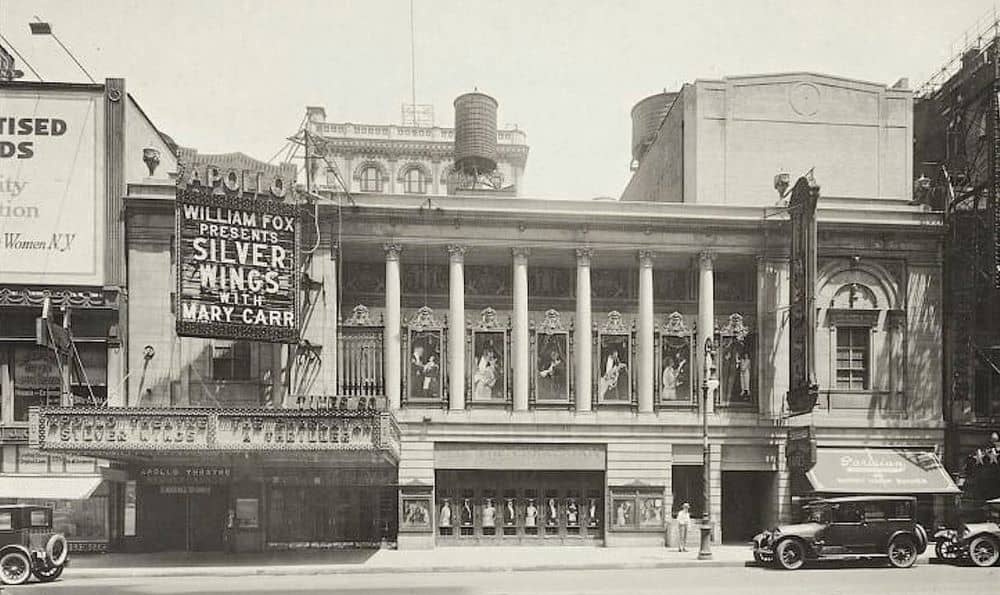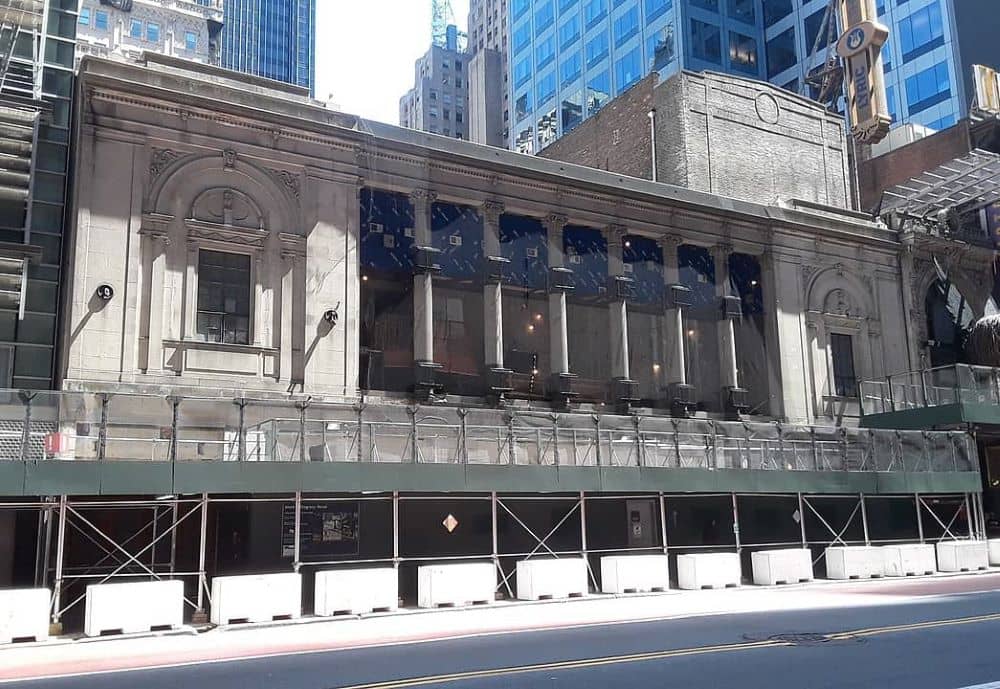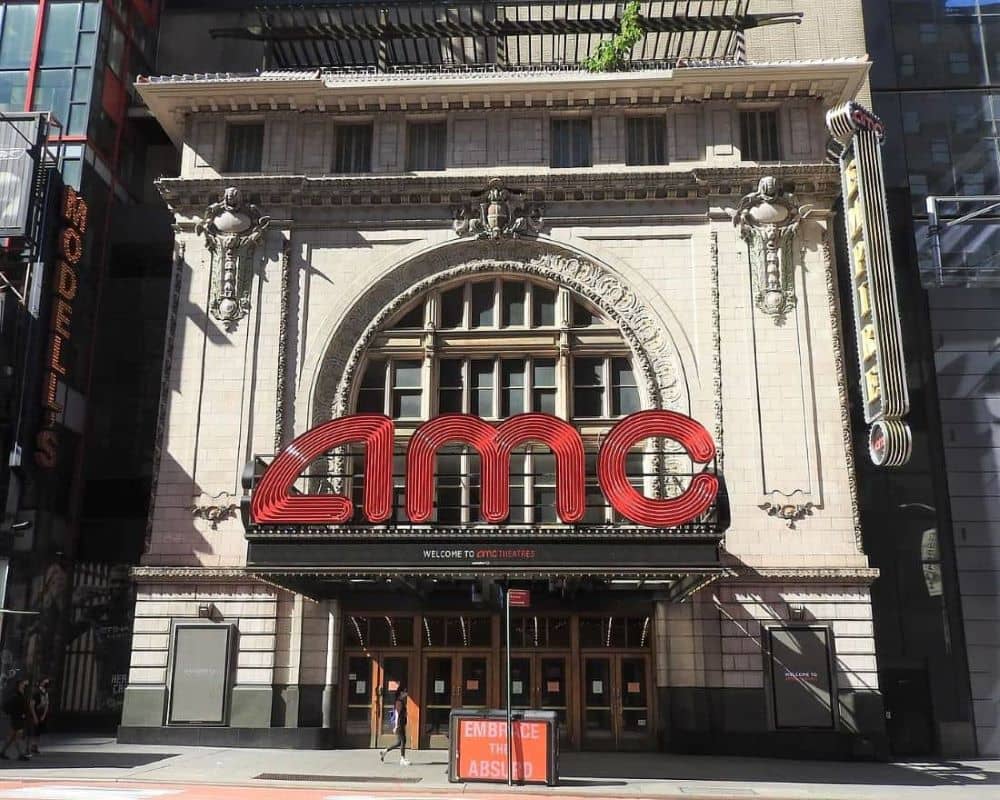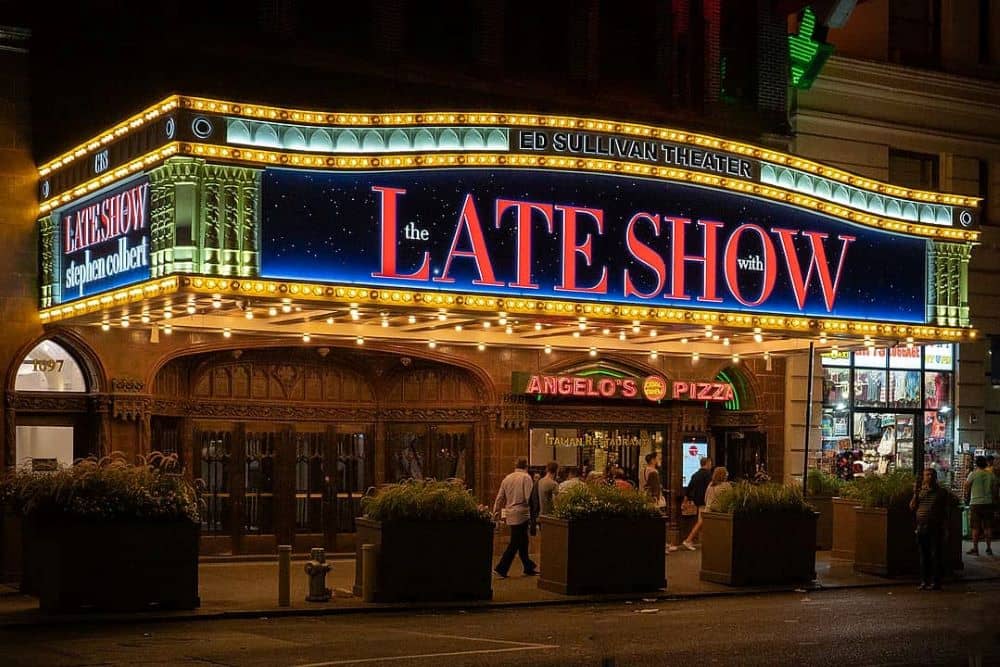New York City is the hub of the American theatre scene. In 2018 the World Cities Culture Report counted 637 operational theatres within the city’s limits and estimated that ticket sales for New York City’s theatrical events total $1.7 billion yearly. Still, even the modern popularity of the Great White Way pales compared to its heyday during the Roaring 20s. When the film industry was in its infancy, live theatre was the city’s dominant form of entertainment. Nineteen of the forty-one active Broadway theatres opened between 1920 and 1930. Developers constructed many others during this period only to immediately fall prey to the financial devastation of the 1929 stock market crash. Most of these playhouses no longer exist, but there are several notable exceptions, including the Times Square Theatre.
History of the Times Square Theatre

Eugene de Rosa designed The Times Square Theatre, which opened in 1920 with a production of Edgar Selwyn’s drama The Mirage. It’s at 217 West 42nd Street, right next to where Harry Potter and the Cursed Child at the New Victory Theatre. The theatre hosted several other notable performances. Some patrons might remember the American premiere of Noël Coward’s Private Lives. However, Depression-era financial woes drove its management bankrupt in 1933. The new owners converted the theatre to a movie theater, featuring lurid, raunchy grindhouse films. It became a popular attraction for its time.
The slowly-decaying Times Square Theatre remained a cinema until the early 1990s. Over the years, its film programming gradually descended toward spatter films and pornography. Still, the Times Square survived the demolition of several other nearby venues. However, the New York City Landmarks Preservation Commission did not select it for protection because it no longer conducted live performances.
In 1992, the Times Square Theatre was drawn into the jurisdiction of New 42nd Street, a city-backed organization intended to refurbish the deteriorating Broadway theatres of 42nd Street and make the area more appealing to tourists.
Charting a New Course
New 42nd Street has successfully refurbished six of the seven Broadway theatres left under its jurisdiction, including the New Victory Theatre and the American Airlines Theatre. The Times Square Theatre is the last to be repaired, in part because its unique layout poses a challenge for renovators.
Some preservationists felt that the theatre should be restored to its former glory and once again used for theatrical performance. However, safety standards and accessibility requirements have changed significantly since shows were last staged in the Times Square ninety years ago—for example, all of the theatre’s exits are directly on 42nd Street, which would make audience egress difficult in the case of fire and would tremendously complicate load-ins for new shows.
Instead, it was decided that the Times Square Theatre would be repurposed entirely.
Over the decades, New 42nd Street fielded various proposals from new business ventures—including, on three separate occasions, plans for a professional wrestling-themed restaurant, a gladiator-themed restaurant, and a Marvel Comics-themed restaurant. Designer Marc Ecko and the developers behind the short-lived Broadway 4D fad both held the lease for the Times Square Theatre at various points but later abandoned their planned projects for the space.
Current Prospects

In 2017, New 42nd Street chose the design firm Stillman Development International to execute a renovation of the Times Square Theatre that would both honor the theatre’s roots as a performance venue while creating an inviting space for new tourist attractions.
The current planned redesign from 2019, includes the addition of several floors that will more than double the theatre’s height. Stillman’s developers aim to retain the essential feel of the theatre’s historic architecture by restoring its proscenium arch and elaborate plaster ceiling while simultaneously incorporating more modern design elements, including a protruding glass-walled atrium with a sweeping view of 42nd Street.
Developers expected to complete The Times Square Theatre’s redesign in 2020 at a cost of approximately $100 million. However, the project faced significant delays since the onset of the Covid-19 pandemic. The theater still does not have renovation timeline as of 2023.
Other Renovated and Repurposed Theatres in NYC
The Times Square is far from the only theatre to get a post-renovation life. Many other abandoned theatrical spaces across the city now serve as entertainment complexes, recording studios, and even educational centers.
The Liberty Theatre and The Empire Theatre

Broadway’s historic Liberty Theatre and Empire Theatre, which opened in 1904 and 1912, respectively, were home to several theatrical performances in the early 20th century but had both been shuttered by the mid-1940s. In 1998, New 42nd Street wheeled the exterior shell of the Empire Theatre 170 feet down 42nd Street. It became the façade of the AMC Empire 25 movie theater. The former site of the Empire and the adjacent Liberty theatre now host Ripley’s Believe It or Not! and Madame Tussauds wax museum.
The Palace Theatre
Home to the original Broadway productions of Aida, Legally Blonde, and SpongeBob SquarePants: The Broadway Musical, the Palace Theatre began its life as a vaudeville house. The Nederlander Organization then converted it to a “legitimate” theatre in 1965. The Palace underwent a unique renovation in 2022 as part of the TSX Broadway project. Workers lifted the theater thirty feet above Times Square, and it’s now the third floor of the new TSX building. It’s a combined hotel, entertainment complex, and retail center.
The Ed Sullivan Theater

After opening as Hammerstein’s Theatre in 1927, this theatre was variously known as the Manhattan Theatre, Billy Rose’s Music Hall, and finally The Ed Sullivan Theater. Originally home to musical comedies, the Ed Sullivan faced bankruptcy during the Great Depression. It then pivoted between a various uses, like a vaudeville hall, dinner theatre, and finally a television recording studio. The Ed Sullivan Theater was famously home to the Beatles’ United States debut during a taped performance for The Ed Sullivan Show. Today, CBS owns the theater and films The Late Show with Stephen Colbert.
The Audubon Ballroom and Theatre
The Audubon Ballroom and Theatre in Washington Heights served as a vaudeville venue and movie theatre following its opening in 1912. The ballroom eventually became a site for religious worship and a meeting place for union leaders and community activists. The groups included the Municipal Transit Workers, the IRT Brotherhood Union, and the Organization of Afro-American Unity. During an OAAU meeting on February 21st, 1965, the Audubon Ballroom became the assassination site of Malcom X when he was shot onstage while delivering a speech.
New York seized possession of the building in 1967 due to unpaid taxes. At that time, Columbia University planned to demolish the then-deteriorated Audubon in 1989 for a new research facility. However, community protests compelled the University to leave the ballroom intact while replacing much of the surrounding structure. Today, the former Audubon Ballroom and Theatre building includes both the Audubon Business and Technology Center and the Malcolm X and Dr. Betty Shabazz Memorial and Educational Center.
Editor’s Note: We updated this article to enhance readability.




